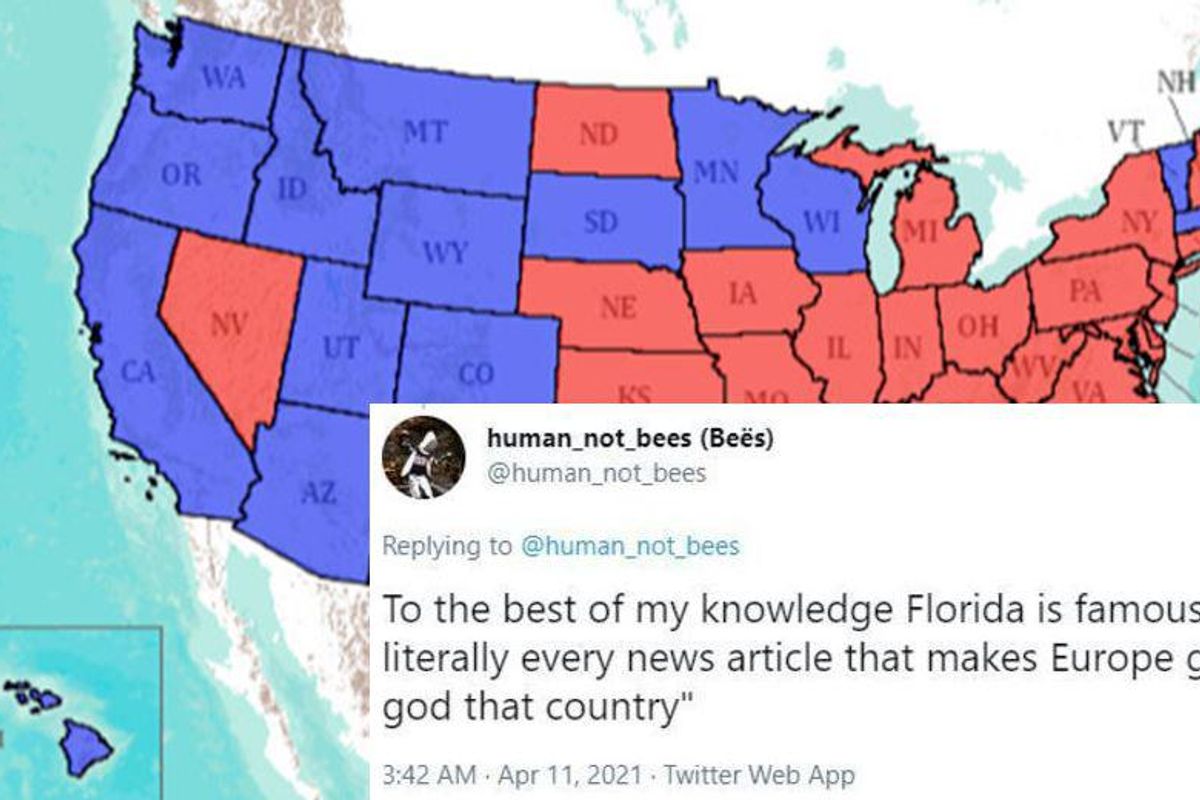A British man hilariously guessed what all 50 U.S. states are famous for without Googling
It's probably pretty hard for someone born outside of the United States to make sense of our country. It's large, has a diverse population, and its topography encompasses everything from low deserts to frozen Arctic climates to dense forests.
However, the United States is probably the most culturally dominant society in the world. People across the globe read our books, watch our movies, and listen to our music. So most people probably have a clearer concept of what life's like in our country then we do about them.
A British man that goes by the Twitter handle human_not_bees (Beës) tested his knowledge of the country across the pond by listing all of America's states and then saying what he thinks they're known for best. He claims he did so without Googling.
He was confident that he could get most of them right because U.S. culture is "pretty pervasive," he told Bored Panda. "We see enough of it that we learn these things from TV shows and movies. Also, you guys have some pretty cheesy TV that seems very willing to lean into the stereotypes of people and places, so really, you guys did this to yourselves," he added.
Here's his list. Do you think he got most of the states right?
It looks like this guy got Florida perfect. It's also the state where people in America say, "Oh God, this country." But let's not be too cruel to sunny Florida, it's also home to Disney World and was where "The Birdcage" was filmed. So it's not all that bad.
I'm a little surprised that Beës didn't know Louisiana is home to New Orleans one of the most culturally significant cities on planet Earth. It's the birthplace of jazz, poker, and Lil Wayne.
He's right about Maryland, even Americans have no idea what happens in Maryland.
Ahh, we get it. America borrowed a few geographical names from places in England. But who helped you beat the Nazis in World War II? Thought so.
Is this a Paul M. Sutter reference?
Yep.
To the best of my knowledge Wyoming is just a big field with a buffalo in it.
— human_not_bees (Beës) (@human_not_bees) April 11, 2021
So how did he do? If he were American I'd give him a D+. But as a Brit, he has a pretty strong understanding of America. I wonder how many Americans would be able to do something similar with the U.K.? What's Wolverhampton best known for? How about Wyre Piddle? Giggleswick? Scranton on Themes?
(Just kidding. There is no such place as Scranton on Themes.)




